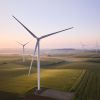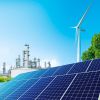Clever ideas for the energy transition
Whether green hydrogen or organic batteries: innovative technologies are the key to sustainability. We present four examples from Germany.
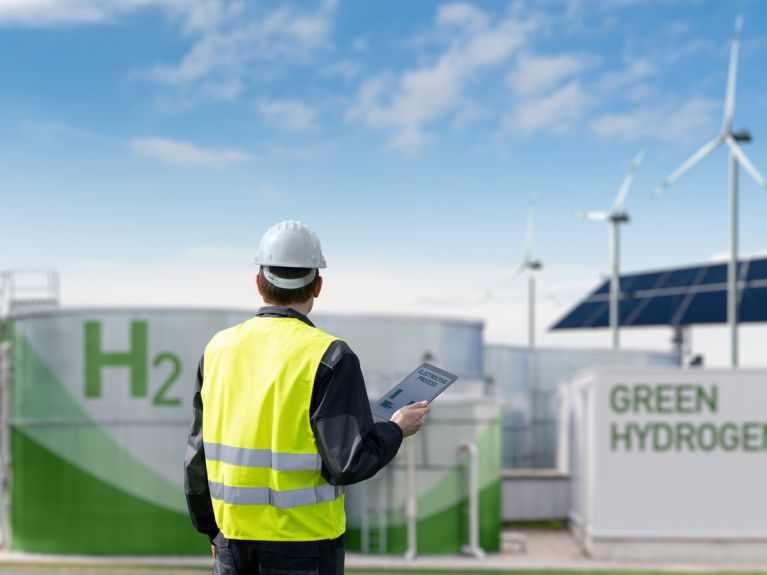
The energy transition is more than just a political goal – it’s a historic challenge. It means moving away from fossil fuels, redesigning the electricity market and improving the integration of renewable energies.
Across Germany, companies of all sizes – from major players to agile startups – are working flat out to develop smart ideas and advanced technologies for the energy transition. We introduce four of them here:
The key to green hydrogen
Green hydrogen is seen as a key technology for the energy transition. Using electricity from renewable sources, it is produced via electrolysis – the process of splitting water into hydrogen and oxygen. This is where Enapter comes in: based in Düsseldorf, the company has developed the world’s first AI-controlled electrolyser, designed to make green hydrogen production more efficient. By applying artificial intelligence to electrolysis, the entire process is optimised and costs are reduced.
“Thanks to the networking of thousands of units, all our devices learn from each other. Our AI identifies opportunities for further improvement and shares the results with customers in real time,” says Enapter CEO Jürgen Laakmann.
The company has around 240 employees and has already installed over 5,000 electrolysers worldwide.
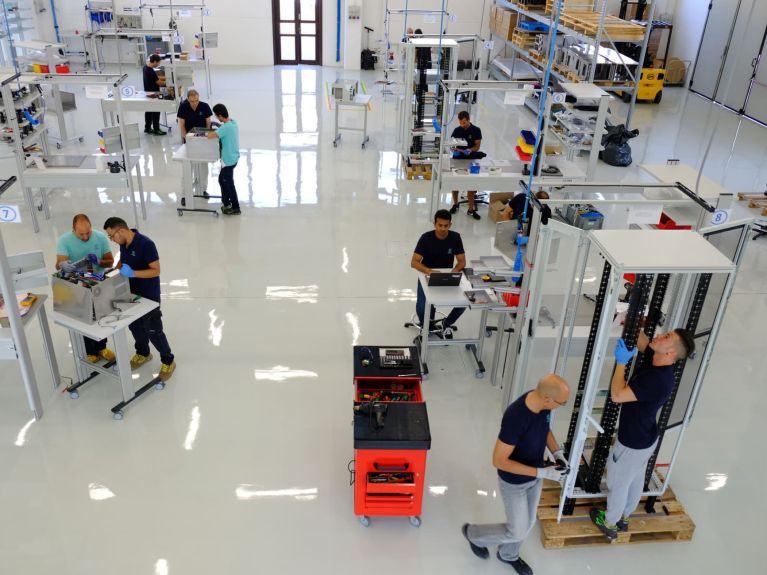
Organic energy storage
While most energy storage systems still rely on lithium-ion technology, CMBlu Energy based in Alzenau, Bavaria is taking a different approach: the company is developing large-scale organic solid-state batteries that do not require environmentally harmful or explosive raw materials such as lithium, cobalt or nickel. Instead, their batteries use lignin – a plant-based by-product from the paper industry.
“Our organic solid-state battery combines high safety, long lifespan and sustainability. It’s a whole new category of energy storage,” says CMBlu CEO Constantin Eis.
With this technology, the company aims to offer a European alternative to battery production, which is currently dominated by Asia – thereby reducing both environmental damage and geopolitical dependency. CMBlu has successfully tested its storage solutions in pilot projects and brought them to market maturity; it is now working with major industrial partners on further rollout.
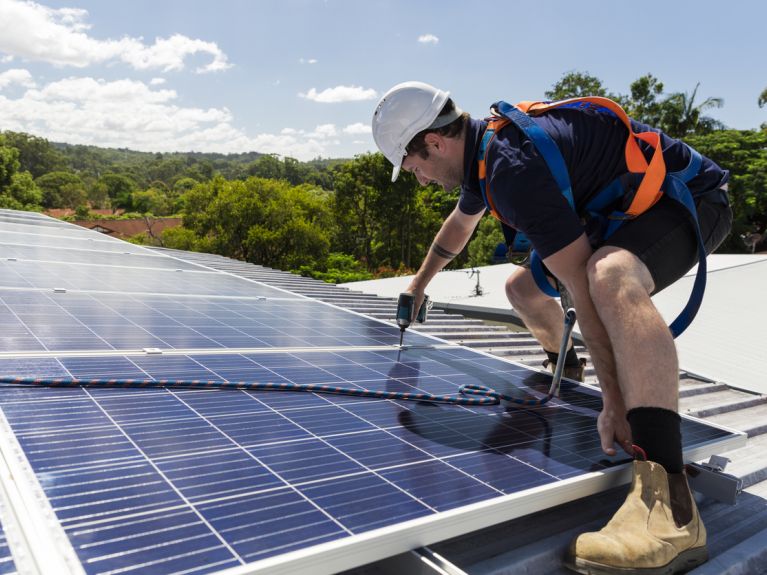
Solar power for everybody
Enpal, based in Berlin, has established a model for solar panel rentals. The idea: households are to be able to benefit from solar power without high upfront costs. Rather than selling solar panels, the company rents them out – including installation and maintenance.
With the help of a digital platform, users can monitor and control their solar panels, batteries and charging stations to match electricity use to market conditions. This allows them to store surplus electricity or feed it into the grid, thereby reducing their energy bills.
“Solar energy is far cheaper than fossil fuels. So whether you rent or buy your system, it’s a smart investment,” says Enpal CEO Mario Kohle.
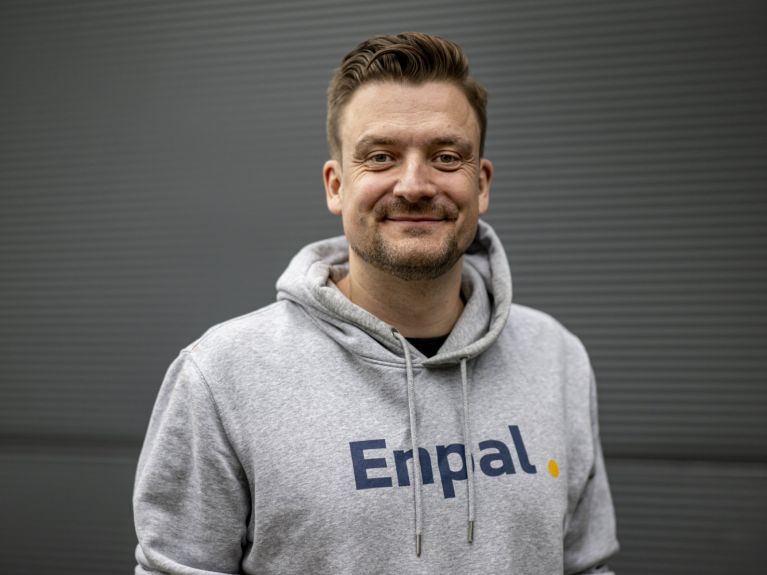
Virtual power stations
The power grid of the future will be more decentralised and flexible – and this is where Next Kraftwerke comes in. The Cologne-based company has developed a platform for virtual power plants that brings together thousands of decentralised, sustainable energy sources – such as wind turbines, solar panels and CHP units – into one large, controllable network. This virtual power plant can feed electricity into the grid or store it, depending on demand, helping to prevent bottlenecks and maintain grid stability.
With over 14,000 connected systems and nearly 13,000 megawatts of aggregated capacity, Next Kraftwerke is one of Europe’s largest virtual power plant operators.
